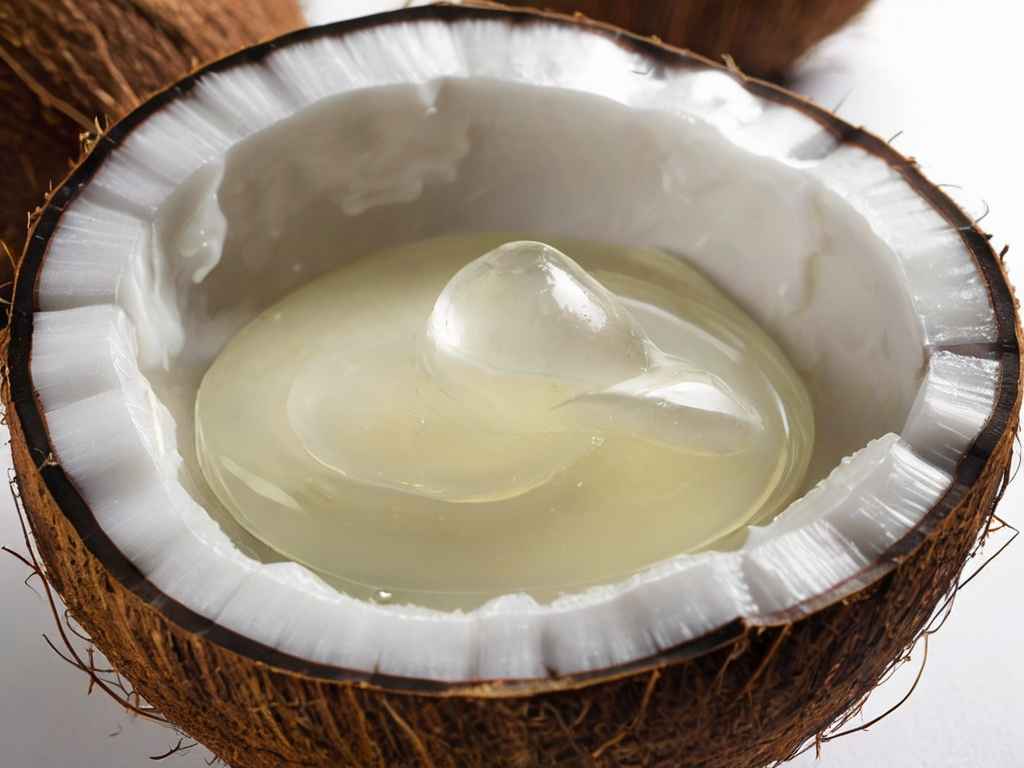Coconut oil is a versatile and widely used oil known for its numerous health benefits, culinary applications, and skincare properties. But it goes in the solid state, so you can mix it with coconut oil to keep it liquid with any other oil.
This article explores the factors behind coconut oil solidification and provides insights into what can be mixed with coconut oil to keep it in its liquid form.
Importance of Keeping Coconut Oil Liquid
Maintaining Coconut Oil to Keep It Liquid state is crucial for various applications, including cooking, skincare, and hair care. Liquid coconut oil is easier to measure, pour, and apply, making it more versatile and convenient for everyday use.
Coconut oil solidification occurs due to its unique composition, which primarily consists of saturated fats. When exposed to lower temperatures, these fats solidify, resulting in the transformation of coconut oil from a liquid to a solid state. This natural process is influenced by various factors.
Explore: How to Solidify Liquid Coconut Oil for Hair
Factors Affecting Coconut Oil Solidification
Temperature Variations
Temperature plays a pivotal role in determining the consistency of Coconut Oil to Keep It Liquid. In warmer environments, coconut oil remains in a liquid state, while cooler temperatures cause it to solidify. This phenomenon explains why coconut oil tends to appear liquid in tropical climates but solidifies in colder environments.
The melting point of coconut oil, which is around 76 degrees Fahrenheit (24 degrees Celsius), dictates its behavior. In warmer regions, where temperatures often exceed this threshold, coconut oil remains in its liquid form, making it easily pourable and suitable for various applications.
Conversely, in colder climates where temperatures drop below the melting point, coconut oil solidifies into a white, creamy consistency, making it more challenging to use directly. Understanding the impact of temperature on coconut oil’s consistency is essential for storage, transportation, and application, ensuring optimal usability across different environmental conditions.
Composition of Coconut Oil
The composition of coconut oil, particularly its high saturated fat content, contributes to its solidification properties. Saturated fats have a higher melting point compared to unsaturated fats, making coconut oil more prone to solidifying at room temperature.
Mixing with Other Oils
Blending coconut oil with different oils can significantly affect its tendency to solidify. Certain oils possess properties that help keep coconut oil in a liquid state, while others may promote its solidification process. The selection of oils to mix with coconut oil depends on various factors such as their fatty acid composition, melting points, and overall chemical compatibility.
For instance, oils like fractionated coconut oil, sunflower oil, or jojoba oil, which are predominantly composed of liquid-at-room-temperature fatty acids, can aid in maintaining the liquid consistency of coconut oil. These oils have lower melting points and can act as solvents, preventing the coconut oil from solidifying even at cooler temperatures.
On the other hand, oils rich in saturated fats, such as palm oil or cocoa butter, have higher melting points and are more likely to solidify. When combined with coconut oil, these oils may expedite the solidification process, especially in cooler environments to help Coconut Oil to Keep It Liquid.
How to Mix Coconut Oil with Other Ingredients?
To Mix Coconut Oil to Keep It Liquid with other ingredients effectively, follow these simple steps:
- Choose Your Ingredients: Select the desired ingredients to mix with coconut oil based on your preferences and intended use.
- Measure the Ingredients: Use measuring spoons or cups to accurately measure the quantities of coconut oil and other ingredients.
- Mix Thoroughly: In a clean bowl or container, combine the coconut oil and other ingredients, stirring or whisking until well blended.
- Store Properly: Transfer the mixture to a sealed container or bottle and store it in a cool, dry place away from direct sunlight.

Common Methods Coconut Oil to Keep It Liquid
To maintain coconut oil in its liquid form, various methods can be employed:
Mixing with Liquid Oils
Blending coconut oil with liquid oils such as olive oil, sunflower oil, or almond oil can prevent it from solidifying. These oils have lower melting points, which help keep the coconut oil in a liquid state even at lower temperatures.
Adding Emulsifiers
Indeed, emulsifiers like lecithin can be incorporated into Coconut Oil to Keep It Liquid, to augment its stability and hinder the process of solidification. By introducing such substances, the fats within the coconut oil are dispersed uniformly, diminishing the probability of solidification occurring. This enhancement in stability ensures that the coconut oil remains in a liquid state for longer periods, facilitating its usage in diverse culinary and cosmetic endeavors.
Storing it in a warm place
Storing coconut oil in a warm place, such as a cupboard or on the counter, is an effective method particularly in regions with higher ambient temperatures. This approach capitalizes on the oil’s low melting point, which is typically above 76 degrees Fahrenheit. By doing so, the Coconut Oil to Keep It Liquid, readily accessible for various culinary and cosmetic applications.
Blending with Essential Oils
Adding essential oils like lavender or peppermint to coconut oil not only imparts fragrance but also aids in preserving its liquid consistency. Essential oils have lower melting points compared to coconut oil, which assists in keeping the mixture in a liquid state for longer durations.
Effect of Mixing Coconut Oil with Other Oils
Oils that Keep Coconut Oil Liquid
Certain oils, such as grapeseed oil, jojoba oil, and fractionated coconut oil, are known for their ability to keep coconut oil in its liquid form. Incorporating these oils into coconut oil blends can help maintain its liquid consistency.
Oils that Solidify Coconut Oil
Conversely, oils with higher saturated fat content, such as palm oil or cocoa butter, may accelerate the solidification of coconut oil. Mixing coconut oil with these oils could result in a firmer consistency.
Explore: How to Solidify Liquid Coconut Oil in Microwave: A Comprehensive Guide
Precautions and Storage Tips
When mixing coconut oil with other ingredients to Coconut Oil to Keep It Liquid, consider the following precautions and storage tips:
- Avoid Contamination: Use clean utensils and containers to prevent contamination of the mixture.
- Check Compatibility: Ensure that the ingredients you mix with coconut oil are compatible and safe for your intended use.
- Store Properly: Store the mixture in airtight containers away from heat and moisture to maintain its quality and effectiveness.
Conclusion
In conclusion, while coconut oil is prized for its versatility and health benefits, its tendency to solidify can pose challenges in certain conditions. By understanding the factors influencing coconut oil solidification and utilizing appropriate mixing techniques, it’s possible to Coconut Oil to Keep It Liquid, ensuring ease of use and application.
FAQs
1.Can I mix coconut oil with water to keep it liquid?
No, mixing coconut oil with water will not keep it liquid as water and oil do not mix. Instead, opt for ingredients like vegetable oils or essential oils.
2.Is it safe to use essential oils with coconut oil?
Yes, essential oils are generally safe to use with coconut oil, but it’s essential to dilute them properly and perform a patch test to check for any allergic reactions.
3.Can I microwave solidified coconut oil to liquefy it?
While microwaving coconut oil may temporarily liquefy it, repeated heating can degrade its quality and beneficial properties. It’s best to use other methods to keep it liquid.
4.How long can I store mixed coconut oil?
Mixed coconut oil can typically be stored for several months in a cool, dry place. However, check for any signs of spoilage, such as a rancid smell or unusual appearance, before use.
5.Can I mix coconut oil with other oils for hair care?
Yes, mixing coconut oil with other oils like argan oil or jojoba oil can enhance its benefits for hair care, providing moisture, shine, and nourishment.


4 Comments
[…] Explore: What to Mix with Coconut Oil to Keep It Liquid […]
[…] Explore: What to Mix with Coconut Oil to Keep It Liquid […]
[…] Explore: What to Mix with Coconut Oil to Keep It Liquid […]
[…] Explore: What to Mix with Coconut Oil to Keep It Liquid […]